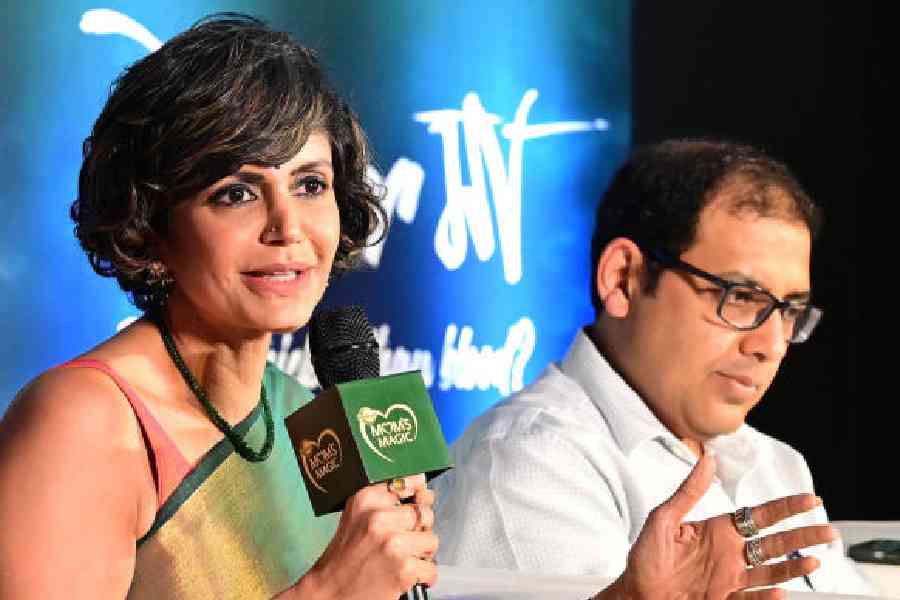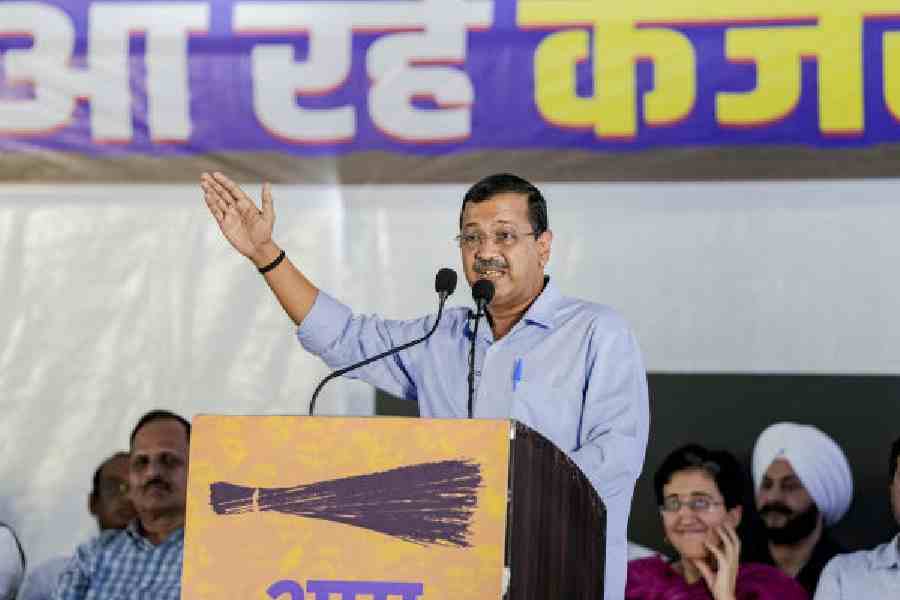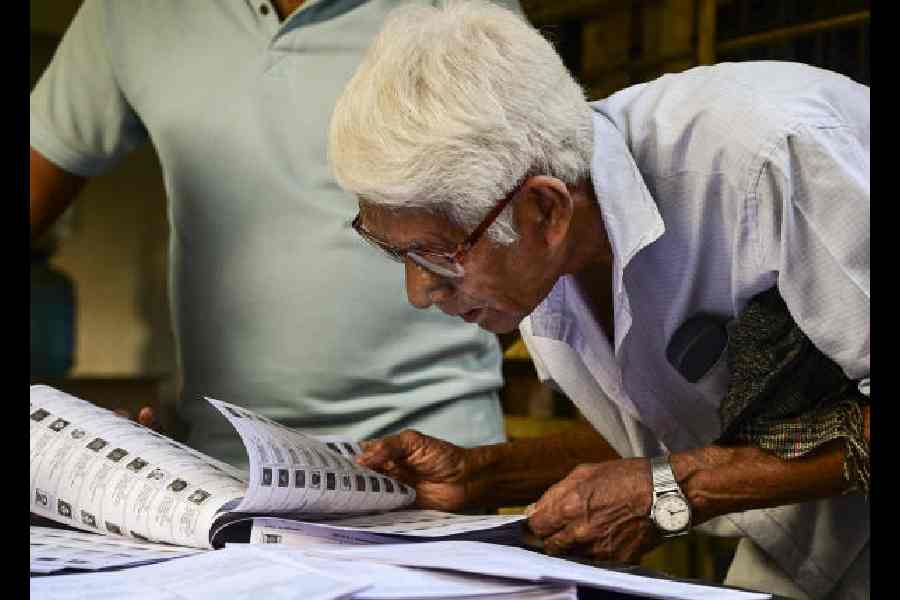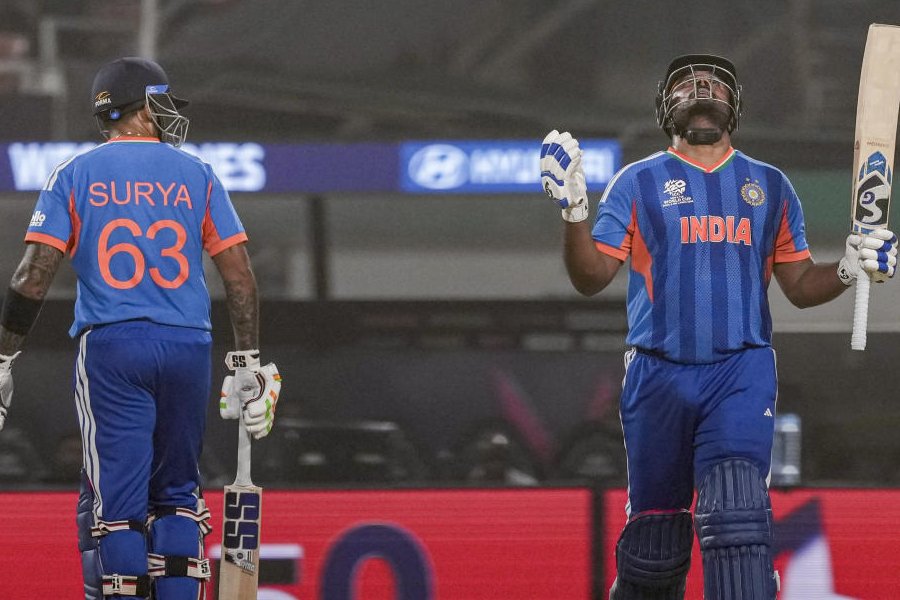Aniruddha Roy Chowdhury’s recently released film, Dear Maa, addresses the subject of adoption and raises the question of whether blood ties are stronger than emotional bonds. ITC Sunfeast Mom’s Magic, in collaboration with Dear Maa, hosted a panel discussion on ‘Normalising and Navigating Adoption in India’ at JW Marriott on July 16. The initiative aimed to foster open conversations about adoption while celebrating the multifaceted nature of motherhood and the transformative power of unconditional love. Actress, fitness enthusiast, and former sports commentator Mandira Bedi attended the event as the chief guest. She was joined on the panel by Jaya Ahsan, the lead actress of Dear Maa, filmmaker Aniruddha Roy Chowdhury, Shuvadip Banerjee, chief digital marketing officer of ITC Foods, and Soumeta Medhora, secretary of The Indian Society for Sponsorship and Adoption (ISSA).
Mandira Bedi, who has experienced both biological and adoptive motherhood, shared that her decision to adopt was not a last resort to experience motherhood, but rather a belief in the philosophy of “have one, adopt one.” She recalled discussing this idea with her husband when they were dating. “I was in my early 20s, and we talked about our dreams and goals. I shared this idea with him, and he was suitably impressed. However, actually going ahead with it turned out to be another story.”
Mandira also highlighted how the three to four years spent waiting after submitting adoption papers can be disheartening for many. She urged the Central Adoption Resource Authority (CARA) to consider ways to expedite the process. “When I was pregnant, I decided that if it were a boy, his name would be Veer, and if it were a girl, it would be Tara. So when Veer came along, Tara had to follow. When Veer was about six, we submitted our adoption papers, but it took a very long time to prepare those documents. CARA does make the process easier for parents, but I hope the waiting period can be reduced,” she shared.
Reflecting on how adoption completed her family, Mandira said, “I lost my husband four years ago, and because of Tara, we’re still a family unit. When I look at her and into her eyes, I can see into her soul, and I truly believe she was meant to be part of our family. My son is musically gifted, which I find remarkable since I am not musically inclined at all. He is also very artistic, while my daughter resembles my younger self — she’s physically active and athletic.”
While Mandira had the support of her husband in her decision to adopt, she revealed that her liberal parents expressed doubts. “Many people say, ‘We want to have our own child,’ which suggests that the second child could be adopted. I feel blessed to have the opportunity to be both a biological and adoptive parent; it feels incredibly special. I consider myself privileged,” she said.
She also emphasised the importance of considering slightly older children for adoption. “Many parents only think of babies when it comes to adoption, but there are so many children who reach a certain age and, unfortunately, miss out on finding a family. It’s heartbreaking to see these children remain in the system without parents. Think about the option of adopting older kids, as they deserve love and stability too. Tara came to me when she was four years old,” Mandira explained.
Aniruddha Roy Chowdhury talked about how his film was conceived. “The question I had was whether blood ties are everything, or if we can feel a deep connection with someone we love that transcends blood relationships. If a tree can hold significant importance in our lives, how far can our love for a child go? We might even be willing to give our lives for them,” he said. He also mentioned that motherhood isn’t exclusive to mothers; it can include anyone who nurtures a family, including fathers. Aniruddha reflected on Jaya’s layered portrayal in the film, noting, “As a mother, she isn’t very soft; she’s ambitious and focused on her career. Over time, we witness her emotions rising to the surface. She’s a fabulous actor, but there was one scene where she struggled. While she was instructed to be strong when the child became ill, she ended up crying every time she had to place her hand on the child’s forehead. That was a genuine moment we needed to capture. That’s the magic of motherhood. Both the mother and the child were experiencing these emotions together. Although it isn’t a big-budget film, we created it with a big heart. If even one person changes his or her perspective after watching the film, that will be a triumph for us,” said Roy Chowdhury.
In discussing her character, Jaya shared insights into her preparation for the role and her takeaways from the film. She reflected, “I thought about my childhood and how my mother handled me. The film portrays two different ages, and I considered how I behaved at those ages and what questions I would ask my mother. I had never really analysed this before, but this film prompted me to do so. All of this made my role different from others I’ve played. It’s incredibly powerful that Mom’s Magic collaborated with us, and we should be empathetic towards all mothers.”
Soumeta Medhora, connecting with Aniruddha Roy Chowdhury’s comments about Jaya’s honest reaction during a scene, highlighted a common concern expressed by adoptive mothers: how they come to understand that they have become a mother to their adopted child. She stated, “When we talk to adoptive mothers, they often mention that the bond is created in moments like when a child is unwell and needs comfort. If you touch your hand to the child’s forehead and they stop crying, that’s when you feel you’ve become a mother.” Roy Chowdhury added that neither he nor his scriptwriter had planned that moment; it simply unfolded on set.
Medhora emphasised the importance of preparation and transparency regarding adoption, noting the long process that adoptive parents and children undergo. She reiterated that it is crucial to be open about adoption, both with the adopted children and the rest of the family and society, despite societal stigmas. “There are over 36,000 families waiting to adopt roughly 960 children in the system, of which only 900 do not have special needs. Many children with special needs remain unadopted. A lot of adoptions happen without legal sanction because people are often secretive about adopting a child, which ultimately harms everyone involved, especially the child. I urge parents to be honest about their feelings when they express their desire to adopt. Motherhood is a preparatory journey — it’s nine months in the womb and about three and a half years outside... it cannot just be a one-time conversation with your child about their adoption; it’s a process that requires comfort and openness.” Mandira shared her own experience, stating that she has always been transparent about her daughter Tara’s adoption. “We celebrate two significant days each year: her birthday and her homecoming day, which is the day she was adopted,” Mandira said.
Regarding the association of Mom’s Magic with Dear Maa, Shuvadip Banerjee remarked, “I believe the most magical relationship on this planet is that between a mother and her child. At Sunfeast’s Mom’s Magic, we strongly resonate with this idea and aim to celebrate the enchanting moments that mothers create over time. The magic of motherhood lies not just in giving birth but in how a mother nurtures her child. It encompasses everyday love, choices, and sacrifices. All of these factors together define the magic of being a mother.” Banerjee further explained the decision to use film as a medium: “We believe that impactful content is essential. Such a strong and powerful message needs to reach society, and we think that the long format and large screen can present this message effectively. This isn’t just a matter of perception; data has proven this in the past. Hence, we focused on strong content rather than just cinema. It’s a truly important message, which is why we partnered with CARA and Dear Maa.” The session concluded with a recorded video recitation of the poem Dil Se Maa by Anubha Fatehpuria.










